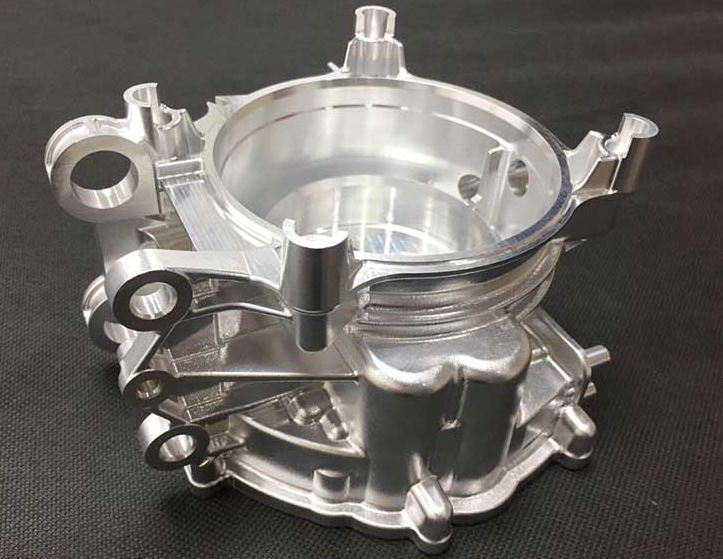Stahl Specialty Company - Questions
Stahl Specialty Company - Questions
Blog Article
An Unbiased View of Stahl Specialty Company
Table of ContentsTop Guidelines Of Stahl Specialty CompanyThe Best Guide To Stahl Specialty CompanyThe Ultimate Guide To Stahl Specialty CompanyOur Stahl Specialty Company PDFsHow Stahl Specialty Company can Save You Time, Stress, and Money.
Chemical Contrast of Cast Aluminum Alloys Silicon promotes castability by decreasing the alloy's melting temperature level and boosting fluidness throughout spreading. Additionally, silicon adds to the alloy's stamina and put on resistance, making it useful in applications where durability is critical, such as automobile components and engine parts.It likewise enhances the machinability of the alloy, making it less complicated to refine right into ended up items. In this means, iron contributes to the total workability of aluminum alloys. Copper boosts electrical conductivity, making it advantageous in electric applications. It also improves deterioration resistance and contributes to the alloy's overall strength.
Manganese adds to the stamina of light weight aluminum alloys and boosts workability. It is typically made use of in functioned light weight aluminum items like sheets, extrusions, and accounts. The existence of manganese aids in the alloy's formability and resistance to breaking throughout fabrication processes. Magnesium is a light-weight aspect that gives toughness and effect resistance to light weight aluminum alloys.
It allows the production of lightweight components with outstanding mechanical residential or commercial properties. Zinc boosts the castability of light weight aluminum alloys and helps manage the solidification procedure throughout spreading. It boosts the alloy's toughness and hardness. It is commonly found in applications where complex shapes and great information are required, such as attractive spreadings and particular auto parts.
Not known Factual Statements About Stahl Specialty Company
Due to the fact that aluminum-silicon alloys have excellent spreading buildings, high gas homes, basic procedures, and superb corrosion resistance, aluminum-silicon alloys are most commonly made use of in the die-casting industry in the house and abroad. At the same time, aluminum-silicon alloys are also fairly early and widely acknowledged alloys created and utilized in die-casting. After constant research study and renovation, the majority of the current worldwide mainstream aluminum-silicon alloys have been completed and are nothing greater than A356, A360, A380, ADC12, B390, and A413.
The main thermal conductivity, tensile toughness, yield strength, and prolongation vary. Select ideal basic materials according to the efficiency of the target item generated. Among the above alloys, A356 has the greatest thermal conductivity, and A380 and ADC12 have the most affordable. The tensile limitation is the contrary. A360 has the finest yield strength and the highest prolongation rate.

The 8-Second Trick For Stahl Specialty Company
In accuracy casting, 6063 is appropriate for applications where intricate geometries and top quality surface finishes are critical. Instances consist of telecommunication units, where the alloy's superior formability allows for streamlined and aesthetically pleasing layouts while maintaining structural stability. Likewise, in the Illumination Solutions market, precision-cast 6063 elements develop elegant and reliable lighting components that need complex forms and great thermal efficiency.
(https://www.quora.com/profile/Stahlspecialc)
It leads to a better surface finish and much better corrosion resistance in A360. The A360 exhibits superior elongation, making it suitable for facility and thin-walled components. In precision spreading applications, A360 is appropriate for sectors such as Consumer Electronic Devices, Telecommunication, and Power Tools. aluminum foundry. Its enhanced fluidity enables for intricate, high-precision parts like mobile phone casings and communication tool housings.

In accuracy casting, light weight aluminum 413 beams in the Consumer Electronic Devices and Power Devices markets. This alloy's exceptional rust resistance makes it an excellent choice for outdoor applications, making sure lasting, durable items in the pointed out sectors.
The 5-Minute Rule for Stahl Specialty Company
The aluminum alloy you choose will substantially influence both the spreading procedure and the residential or commercial properties of the last product. Because of this, you have to make your decision thoroughly and take an educated strategy.
Determining the most suitable light weight aluminum alloy for your application will suggest evaluating a broad range of characteristics. The first group addresses alloy attributes that impact the production process.
The alloy you select for die casting directly affects numerous facets of the casting procedure, like how simple the see alloy is to collaborate with and if it is susceptible to casting problems. Warm splitting, also referred to as solidification fracturing, is a normal die spreading problem for light weight aluminum alloys that can result in inner or surface-level splits or fractures.
Our Stahl Specialty Company PDFs
Specific aluminum alloys are much more vulnerable to hot fracturing than others, and your selection should consider this. An additional common issue discovered in the die spreading of light weight aluminum is die soldering, which is when the actors sticks to the die wall surfaces and makes ejection difficult. It can damage both the actors and the die, so you need to try to find alloys with high anti-soldering buildings.
Rust resistance, which is already a notable characteristic of aluminum, can differ considerably from alloy to alloy and is an important particular to consider relying on the ecological problems your product will be exposed to. Use resistance is an additional building commonly sought in aluminum items and can differentiate some alloys.
Report this page